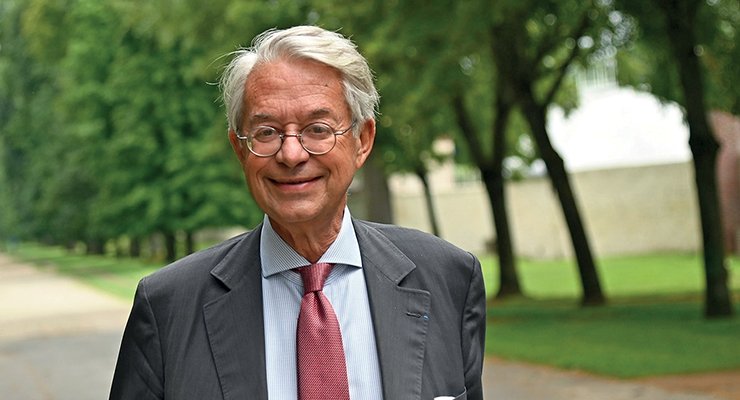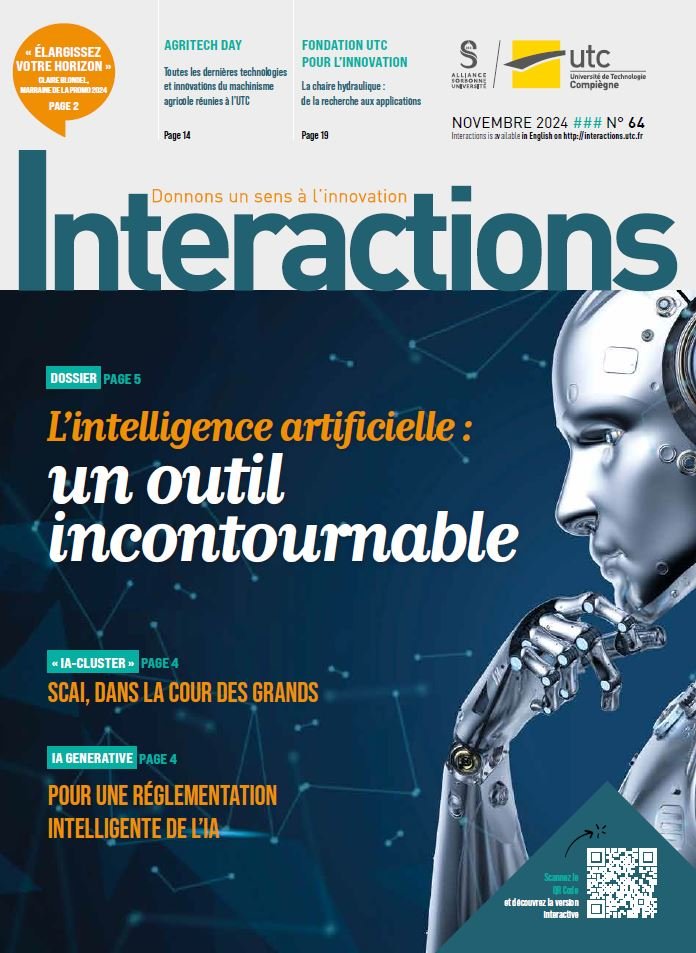UTC, a local ecosystem that benefits the town of Compiègne

Combining the assets of a university with those of an engineering school, UTC-Compiegne represents a local innovation ecosystem where students are encouraged to take the initiative and become involved in the life of the city. The school is located on several sites, all within the city of Compiègne. As a result, the entire urban area benefits from a dynamic that is more than promising. Interview with Philippe Marini, Mayor of Compiègne, Chairman of the Compiègne Region Urban Area and Honorary Senator for Oise.
What is your view of the history of the UTC, as it celebrates its 50th anniversary?
Jean Legendre * set up UTC at a time when many people were opposed to it after the events of May 68. Elected members of the town council and local residents were opposed to the idea of setting up a university in the heart of the town. Pierre Guillaumat, a former minister under General de Gaulle and Jean Legendre were able to impose their vision for Compiègne. At the time, UTC proved itself highly innovative in making this establishment a university and a grande école of technology, even though these subjects were “despised” by a whole section of the intelligentsia. Today, UTC is an educational institution benefitting from a worldwide reputation, with partnerships in China and Brazil, for example. It is one of the best engineering schools in France. What’s more, it has become a major asset for the city and a magnet for brains and businesses. Thanks to the presence of UTC, a favourable ecosystem for the development of companies with jobs that cannot be relocated has been established in the area. Compiègne would not be Compiègne without UTC!
What links does the university have with the town of Compiègne?
The town and its conurbation have benefited enormously from the presence of the university. First of all, it’s located in the town centre, so it brings in young people, which makes our town centre more dynamic. Shops and services, such as sports clubs and cultural life, all benefit from the presence of these young people. UTC’s community life is also part of the city’s liveliness. The Imaginarium Festival is a popular event for young people. Festupic livens up the streets and parks in June. Of course, I cannot list all 155 UTC associations, but they are all useful. As for Tous Unis pour la Cité, this operation, which is now 10 years old, has made it possible to normalise relations between young students and local residents by integrating them into their adopted city from September onwards. Every year, the new undergraduate intake gets involved in improving the town by helping the municipal services, repainting a door, repairing a gate or planting bulbs for spring. It’s a smart way of contributing to the dayto- day life of the people of Compiègne and getting adopted. It’s also a way for young people to experience the reality of life in Compiègne’s neighbourhoods. The UTC is also an architectural link that structures the South of the town. The main entrance to the town is via the main road that passes in front of the Pierre Guillaumat Centre, then in front of the Innovation Centre, and in fact unites the town and its university. Compiègne’s modern urban development over the last 50 years has been partly shaped by the development of the university.
Tell us about the projects and work being carried out by research scientists and students that are having an impact on the city, particularly in terms of a sustainable city.
. On the community side, we have two areas of work with the UTC. Firstly, I’d like to emphasise the excellent relationship we have with the world of research. Lecturers and students regularly help us to move forward with our projects. For example, the station eco-neighbourhood project relies heavily on the work of students and their academics, both in terms of consultation with the station’s residents and users, which is essential for us, and in terms of finding solutions adapted to the site’s environmental constraints. We have been awarded the Eco-quartier label. This is a process that phases each stage of the project with stringent ecological requirements. The impact must be carbon-neutral, and we expect UTC to support us in each of these areas: the reorganisation of traffic flows, the place given to soft traffic, parking arrangements, resilient construction, green spaces, appropriate public lighting.… Here, UTC has a unique place to put the knowledge it has acquired into practice and to produce in situ the fruit of interdisciplinary research. It is the very foundation of the university to produce intelligence for the benefit of society. We also work with UTC via our business incubator. Many start-ups from the UTC develop their industrial projects in our incubator in the Rives de l’Oise Technology Park, which has around twenty companies that are generally the result of private initiatives in conjunction with young research scientists an engineers. This link ensures that fundamental research and applied research are not pitted against each other, but rather that all the right conditions are created for the emergence of innovation to benefit both people and the economy.
What are your expectations for the future with the UTC?
Prof. Claire Rossi, the new President&Vice- Chancellor, Director of UTC, is a local figure! You can feel this in our discussions. She knows and loves Compiègne and wants to strengthen the links between the town and the university. On this basis, we are going to consolidate UTC’s local development plan. We will support her in further developing the university, which needs land to expand and increase its student intake capacity. She and I share this builder’s spirit, and her strategy for UTC can only be a good omen for the town. As another area for developing our relations, I have high hopes for UTC’s skills in the very promising field of ecology, as we have initiated with the Eco-quartier station. We all need to be involved in this area, and I know that I can count on committed and efficient people. Finally, during our initial discussions, Prof. Rossi affirmed her desire to consolidate the university’s relations with the local economic fabric, and in particular with SMEs. This is an area in which we can be very proactive, given our very good knowledge of this sector, which is very present in our intercommunal area.
*Jean Legendre preceded Philippe Marini as Mayor of Compiègne




